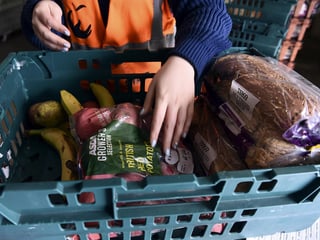How food bank, zero hours and no-deal became the words of the decade – Vladimir McTavish


As we reach the end of the decade, one cannot help but reflect back to December 2009 and take stock of how much has changed in the last ten years. Sadly, quite a lot, and very little for the good.
Imagine if you had been in a coma for ten years and you woke up at the back end of 2019. Your first reaction would be: “What in God’s name is going on, have I entered some kind of parallel universe where everyone lives in world ruled by Dom Jolly?”
Advertisement
Hide AdAdvertisement
Hide AdIndeed, if you had been in a coma due to an accident where you’d lost the use of your legs, and you were informed about this on regaining consciousness, you would probably assume you would qualify for incapacity benefit, only to be told “No, you don’t, you’re fit for to work. You were assessed three years ago when you were still in the coma. You’ve got a job in a call centre, but you’re actually up on a disciplinary right now for taking a three-year toilet break.”
Anyone who had been in a coma for ten years would struggle with conversational English. You’d be wondering what the Hell this thing Brexit was that everyone was talking about. And it’s not the only word or phrase to have entered the lexicon in the past decade.
“Food bank” wasn’t a term in common use at the start of 2010, “zero hours” was a concept yet to find its name.
Ten years ago, “No Deal” wasn’t a threat to the country’s economy, it was one half of the title of a TV show that unfortunately resurrected the moribund media career of Noel Edmunds.
Advertisement
Hide AdAdvertisement
Hide Ad“Vape” wasn’t a word ten years ago. Not only would you not understand what the word meant, you’d also be utterly flummoxed by the number of people on the streets sucking fruit-scented water vapour out of contraptions that looked like a hybrid of a test tube and a sex toy.
“Uber” wasn’t a word ten years ago, unless you speak German. Nor was “Deliveroo”. Deliveroo sums up the age we live in. It’s futuristic and Victorian at the same time.
If you’re too lazy to get off your backside and walk to the kitchen to cook your own meals, you can get the futuristic technology of an app on your phone which allows you to order any food you want from a whole range of local restaurants. And that food appears at your front door very quickly due to the futuristic miracle of some poor guy cycling up a steep hill with a massive fridge on their back.
If you work for Deliveroo, you don’t have a boss or a line manager, you’re effectively employed by an algorithm. Which is sinister and futuristic. But your working conditions come straight out of the pages of Charles Dickens, cycling hundreds of miles a week in the pouring rain on a zero-hours contract. Young people today fall into two distinct categories. They are either clinically obese, or they are painfully thin because they spend their entire working week cycling hundreds of miles delivering food to lazy fat slobs. Boris’s Britain in a nutshell.
I imagine our vocabulary will have more new words by 2030, most of them synonyms for “apocalypse”. Happy New Year!
